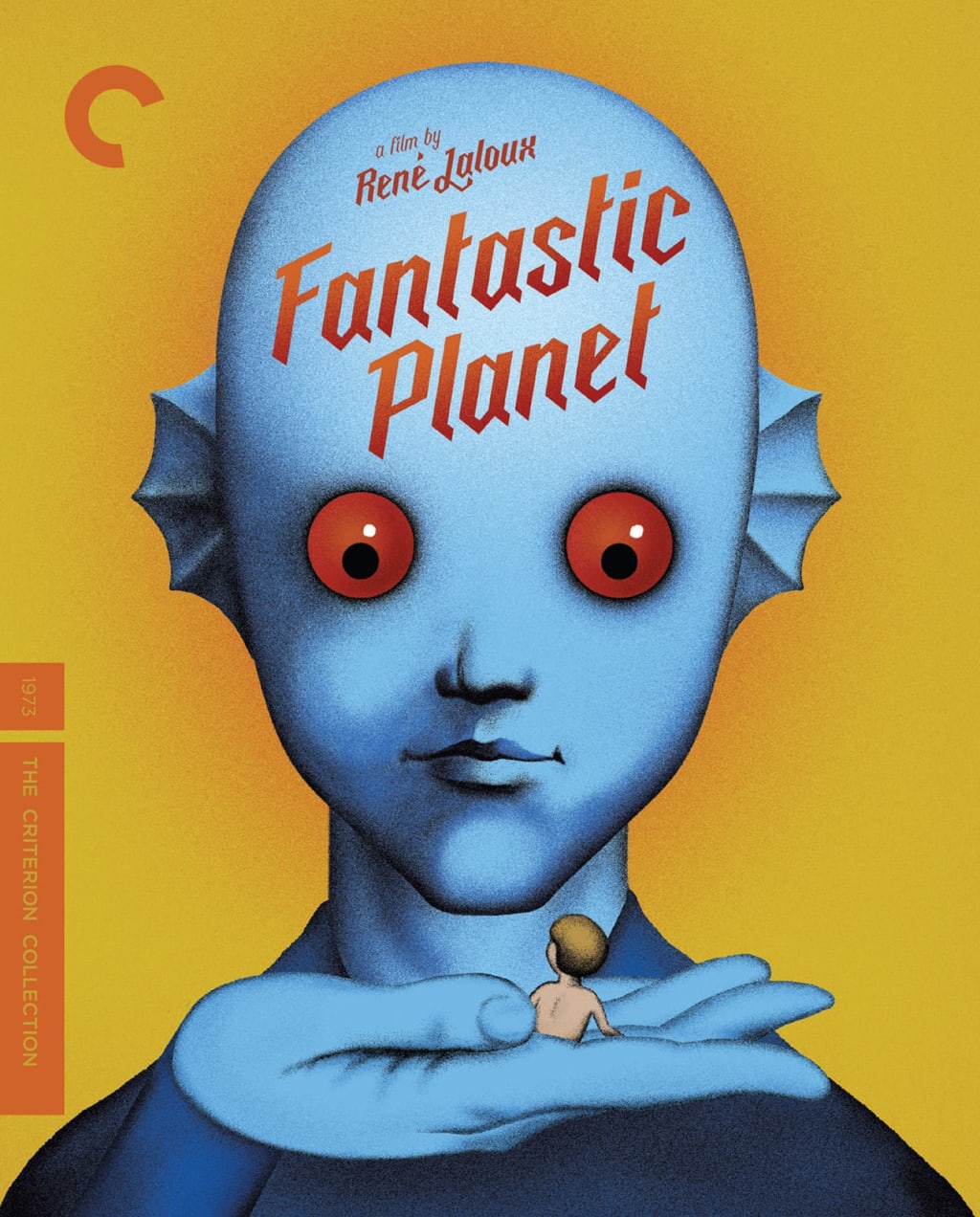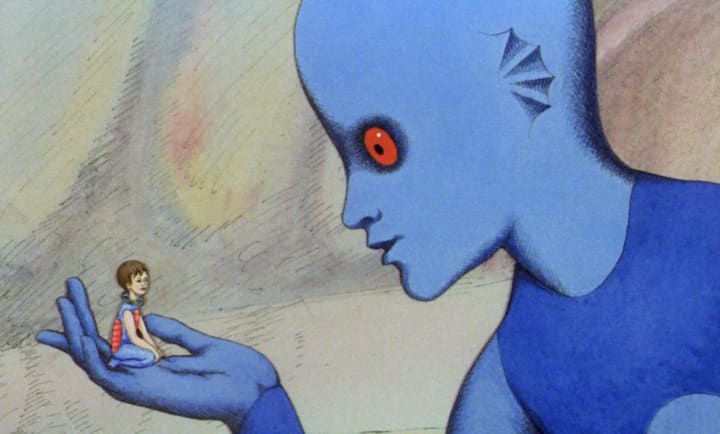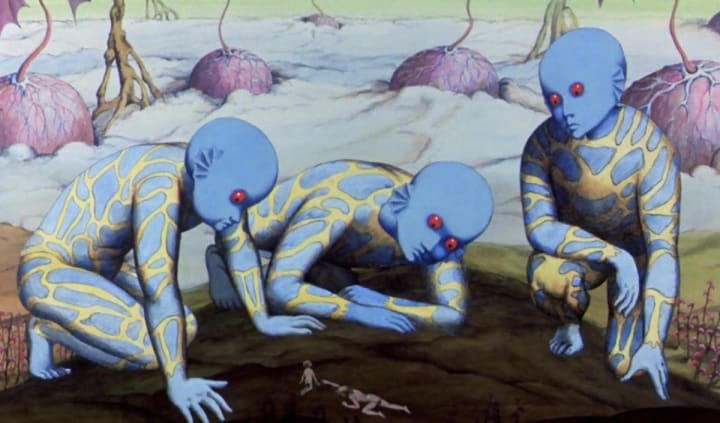A Filmmaker's Guide: Fantastic Planet (1973)
Film Studies (p.154)

In this chapter of ‘the filmmaker’s guide’ we’re actually going to be learning about literature and film together. I understand that many of you are sitting in university during difficult times and finding it increasingly hard to study and I understand that many of you who are not at university or not planning on it are possibly stuck of what to do, need a break or even need to catch up on learning film before you get to the next level. This guide will be brief but will also contain: new vocabulary, concepts and theories, films to watch and we will be exploring something taboo until now in the ‘filmmaker’s guide’ - academia (abyss opens). Each article will explore a different concept of film, philosophy, literature or bibliography/filmography etc. in order to give you something new to learn each time we see each other. You can use some of the words amongst family and friends to sound clever or you can get back to me (email in bio) and tell me how you’re doing. So, strap in and prepare for the filmmaker’s guide to film studies because it is going to be one wild ride.
Fantastic Planet (1973)
One of the most incredible but also one of the most psychedelic films you will ever watch. A great allegory of many things, I like to view this film as what happens when someone who is not born into privilege and wealth gains agency in the world of privilege and wealth. The privileged and wealthy attack these people and try to force them out, but must ultimately learn to live in peace with them.
Many of the scenes in this film try to show us the difference between one and the other. One being the people of the fantastic planet and the other, being the humans who are the natives' toys and pets. They use the humans to entertain themselves, fighting them like plastic toys and making them dress up and perform. It is kind of sickening, but this is also how the capitalist system exploits its workers and makes them do many silly things whilst still not giving them freedoms.
Each still or scene can teach us something about the way in which the film explores extended metaphor. There are many in the film, but I am going to work with my own theory and show you how we can interpret these stills to come to a conclusion of some kind about the exploitation of workers to make sure agency is impossible and, as soon as agency becomes possible, it is seen as something repulsive and wrong by those at the top.
Let us take a look at some:
Still #1

A direct representation of the way in which the human-like creatures are treated by these giants. They are held and observed like toys, the focus of the giant upon the creature is incredible. Note that the creature is not even at eye level with the giant, they are held slightly below eye level and made to look even smaller by the way the giant's hand is shaped around them. The hand is long as opposed to wide, making it look like there is a lot of room on that hand for the human-creature.
Still #2

Another still from the film that shows us this extended metaphor we're working with is this one above. As we can see there is not only a considerable size difference between the human creatures and the giants, but there is also an incredible difference in action. The human creatures are being made to fight for entertainment purposes whereas, the on-lookers (the giants) are not simply watching, they are waiting to see who wins regardless of how injured the humans are. The space in which one giant sits in is about the same size in which the fighting happens and so, we can see just how much power the giants have over the creatures.
Conclusion
As we can see, "Fantastic Planet" can have a range of metaphors attached to it, but I think that the one involving the exploitation of low-paid work by capitalist overlords resulting in a revolution would be the most appropriate for our own times. But, the way in which hundreds of metaphors fit the film goes to show how timeless it really is. I would highly recommend watching this film and making a metaphor of your own, analysing it in context of different stills and scenes and then, coming to your own conclusions of what the film is about before you read any academic texts on the movie and its creators.
About the Creator
Annie Kapur
200K+ Reads on Vocal.
English Lecturer
🎓Literature & Writing (B.A)
🎓Film & Writing (M.A)
🎓Secondary English Education (PgDipEd) (QTS)
📍Birmingham, UK






Comments
There are no comments for this story
Be the first to respond and start the conversation.